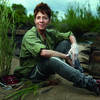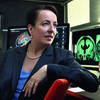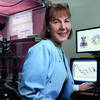14th Annual L’ORÉAL-UNESCO Awards for Women in Science - 2012
Each year, five outstanding women scientists – one per continent – are honoured for the contributions of their research, the strength of their commitments and their impact on society. An international network of nearly 1,000 scientists nominates the candidates for each year’s Awards. The five Laureates are then selected by an independent, international Jury, presided this year by Pr. Günter Blobel, Nobel Prize in Medicine 1999.
Professor Blobel said: 'The work of the 2012 Award Laureates yielded remarkable insights into human health issues, such as diabetes, brain seizures, bacterial and viral infections, and extending to the cultivation of plants in arid areas. Their research is truly original and each is among the best in five distinct regions of the world.'
Faced with global issues such as diminishing resources, increasing and aging populations, and the consequent medical and social challenges, L’Oréal and UNESCO are convinced that these women researchers will have a major impact on society and help light the way to the future.
The L’ORÉAL-UNESCO for Women in Science partnership announced in November 2011, for World Science Day, the five exceptional women scientists from around the world who will receive the 2012 L’ORÉAL-UNESCO Awards in Life Sciences. The Awards Ceremony will take place on 29 March 2012 at the UNESCO Headquarters in Paris. An outstanding role model for the next generation of scientists, each Laureate receives US$100,000 in recognition of her contribution to the advancement of science.
Laureates
AFRICA and the ARAB STATES
Professor Jill FARRANT
Research Chair – Plant Molecular Physiology, Department of Molecular and Cell Biology, University of Cape Town, SOUTH AFRICA
For discovering how plants survive under dry conditions.
Jill Farrant is the world’s leading expert on resurrection plants, which ‘come back to life’ from a desiccated, seemingly dead state when they are rehydrated. Professor Farrant is investigating the ability of many species of these plants to survive without water for long periods of time from a number of angles, from the molecular, biochemical and ultrastructural to the whole-plant ecophysiological, using a unique comparative approach and working with many different species of resurrection plants and a variety of tissues. The ultimate goal is to find applications that will lead to the development of drought-tolerant crops to nourish populations in arid, drought-prone climates, notably in Africa, and her research may have medicinal applications as well.
ASIA / PACIFIC
Professor Ingrid SCHEFFER
Chair of Paediatric Neurology Research, University of Melbourne, AUSTRALIA
For identifying genes involved in some forms of epilepsy.
Ingrid Scheffer is helping to transform the diagnosis and treatment of epilepsy, a brain disorder characterized by seizures and other symptoms that can be extremely disruptive to the lives of the 50 million people affected by it. She has described several new forms of epilepsy and her research group was the first to uncover a gene for epilepsy and subsequently, many of the genes now known to be implicated. These revolutionary findings, which have already improved diagnosis and treatments for many patients and may lead to the development of new therapies, can also be used for genetic counselling. Professor Scheffer’s goal is to ‘make a major difference to patients and families through science’.
EUROPE
Professor Frances ASHCROFT
Royal Society Research Professor, Department of Physiology, Anatomy and Genetics, Oxford University, UNITED KINGDOM
For advancing our understanding of insulin secretion and of neonatal diabetes.
In 1984, Frances Ashcroft discovered a protein (a tiny pore called an ion channel) that acted as the link between blood-glucose levels and insulin secretion. As a result, people with a rare inherited form of diabetes can now relieve their symptoms simply by taking an existing drug in pill form, rather than by daily insulin injections. The drug has improved their blood glucose control and so reduced the risk of diabetic complications, such as blindness and kidney disease. She is now studying why 25% of patients with this disease also have neurological problems, and continues to explore what goes wrong with insulin secretion in type 2 diabetes, which affects 336 million people worldwide.
LATIN AMERICA
Professor Susana LÓPEZ
Developmental Genetics and Molecular Physiology, Department of the Institute of Biotechnology, National University of Mexico, Cuernavaca, MEXICO
For identifying how rotaviruses cause the death of 600,000 children each year.
Since 2006, Susana López has been spearheading the scientific assault on a universal problem, a rotavirus that attacks nearly every child on earth under the age of five causing severe intestinal diseases. It is responsible for the death of some 600,000 children a year in developing countries and makes 2 million more seriously ill every year. With her colleagues, she has examined the workings of the rotavirus from a wide variety of angles, including the way it spreads in human populations, the immune response to it and its replication cycle. Along the way they have developed new diagnostic tests, isolated several new rotavirus strains and contributed to efforts to find a vaccine.
NORTH AMERICA
Professor Bonnie BASSLER
Department of Molecular Biology, Princeton University, USA
For understanding the chemical communication between bacteria and opening new doors for treating infections.
Bonnie Bassler has devoted herself to studying the revolutionary notion that bacteria are not simply individual organisms working on their own for better (helping us digest food, for example) or for worse (causing disease). In fact, as she discovered, they are ineffective on their own and must work as coordinated ‘armies’ to be able to be successful at both keeping us healthy and making us sick. It would be impossible for groups of bacteria to act in unison, however, if they did not communicate with each other. Bassler has shown that bacteria ‘talk’ using chemicals as their words. These startling discoveries may someday lead to the development of new antibiotics that interfere with bacterial conversations as well as many other applications, such as infection-resistant surgical implants.








